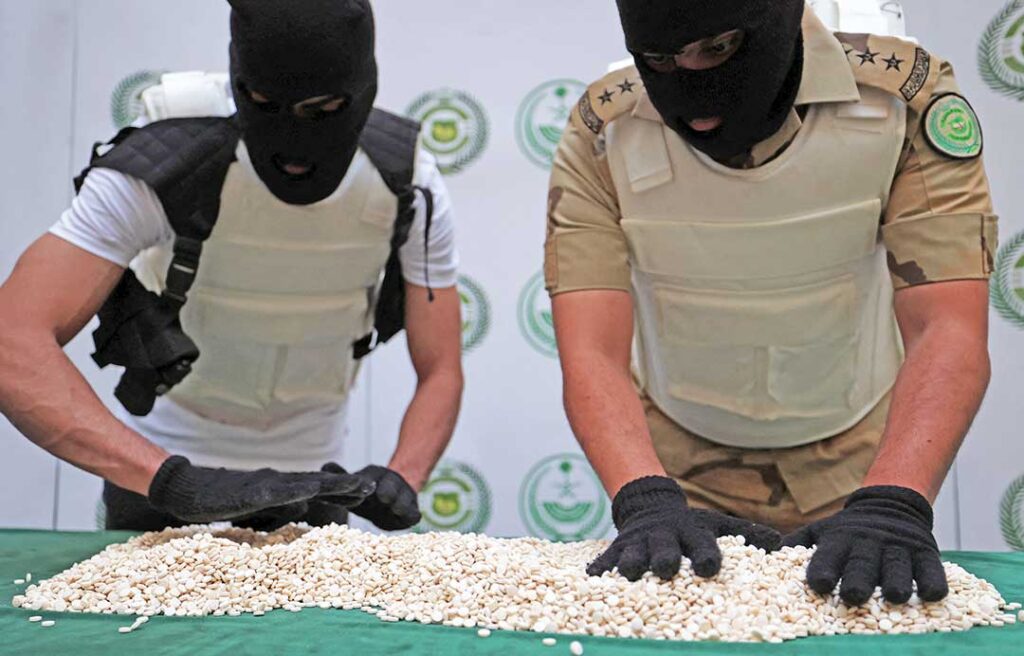UNIPATH STAFF
In the largest drug seizure of its kind in the Kingdom of Saudi Arabia, security forces intercepted about 47 million Captagon amphetamine pills in August 2022.
The pills were hidden inside a
shipment of flour heading from Riyadh Dry Port to a warehouse in Riyadh.
The Zakat, Tax and Customs Authority announced that security forces arrested eight men residing in Saudi Arabia for their involvement in the smuggling operation: six Syrians and two Pakistanis.
“The quantity of narcotics seized in this operation is the largest of its kind smuggled into the kingdom in one operation,” said Maj. Muhammad Al-Nujaidi, spokesman for the Saudi General Directorate of Narcotics Control.
In July 2022, Saudi security forces seized nearly 15 million Captagon pills smuggled into the country through the Port of Jeddah. Those pills were stashed in a machine that molds concrete blocks.
Saudi Arabia, which has the largest economy in the Arab world, is one of the largest Captagon pill destinations in the Middle East, and pills coming from Syria and Lebanon are regularly seized there. The psychostimulant is a popular recreational drug in the region.
The Lebanese and Jordanian armed forces view drug smuggling as a top security threat and have bolstered their national borders to stop it.
Captagon pill traffic in the Middle East was estimated at $5.7 billion in 2021. In the same year, the Zakat, Tax and Customs Authority reported that Saudi authorities seized 119 million pills.
Aside from the obvious harm to health caused by abusing illegal substances, drug smuggling generates huge sums for terrorist organizations to finance violent extremism.
For example, Daesh not only supplies operatives with Captagon to embolden them to carry out attacks, but also uses the revenue generated from its sale to buy weapons.
Captagon pill production has become a source of income for some terrorism-sponsoring states. According to News Lines Institute for Strategy and Policy, Captagon production has shifted from smaller operations in terrorist-held enclaves to industrial operations within the territories held by regimes in the region.

